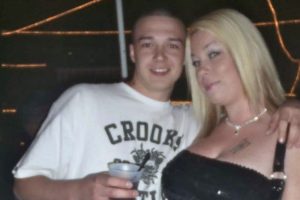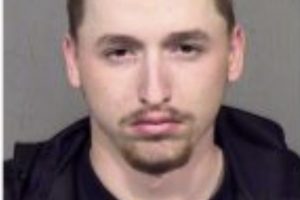Leroy Nicholas Barnes a.k.a. Nicky Barnes

Additional Picture 1: Mr. Untouchable Nicky Barnes
Additional Picture 2: Nicky Barnes With Wife Thelma
a.k.a.
Mr.Untouchable, Nicky, Nicky Barnes, First King of Harlem, Harlem Overlord, CowardD.O.B./Age:
10/15/1933Location:
Harlem, Bronx & Manhattan, New York ; New Jersey ; Pennsylvania (America) | CanadaSnitch Biography:
Before there was an Alpo, we must induct to Golden Snitches the first Kingpin and ruler of Harlem's underworld and his name was Leroy Nicholas Barnes or more infamously known as "Nicky Barnes". You may have heard him in reference to some of your favorite songs or movies. During the early beginnings of the crack-cocaine insurgency in the United States in the late 1970s, Nicky Barnes was at the top of it all in New York. Many knew him during the time as "Mr.Untouchable", but nowadays people dub him as a "coward". So how did Harlem's first notorious ruler get to this point? Well first we need to dissect his early life and who he was.Early life:
1970's in America introduced the crack-cocaine era as per Richard Nixon's presidency. During this time crack-cocaine was introduced into impoverished, predominantly minority, neighborhoods in America to allow families to be easily incarcerated. This eventually lead to post-Nixon president Ronald Reagan to worsen the situation by calling it a "War on Drugs" until the late 1980s. This led to the rise of organized crimes in the variation of the Italian Mafia and minority-based gangs. Leroy Nicholas Barnes was born on October 15, 1933, in Harlem, New York City, into an African-American family. A good student in his youth, Barnes left home early to escape his abusive alcoholic father, turning to drug dealing with a small street gang for income. Barnes himself became addicted to heroin for several years in his 20s until spending time in jail, when he ended his addiction. In 1950, Barnes was arrested for possession of a hypodermic needle. He was later arrested for possession of burglary tools and then for breaking into cars, which earned him a three-year sentence at the Manhattan House of Corrections, more colorfully known as "The Tombs."
With that out of the way, lets get into his king-pen background:
Released in 1954, Barnes returned to his life of dealing on the streets. He got nabbed by the police on a drug charge in 1959 and was sentenced to five years at Green Haven State Prison. While incarcerated, Barnes befriended known mob figure Matty Madonna, a heroin dealer for the Lucchese crime family. Both were engaged in the drug trade, and reportedly shared information on their illegal enterprises. Barnes was released in 1962, and sought to expand his underground operations. Barnes's dream of creating a huge drug empire was interrupted in 1965. He was arrested for possession of more than $500,000 worth of narcotics, according to a report in The New York Times. The article indicated that the police considered Barnes "one of the biggest distributors of narcotics in Harlem and the Bronx." At this time, it was estimated that about 50 people worked for Barnes in his drug operation. Barnes claimed that he had been set up by the police on the possession charge in his autobiography.
In 1965, Barnes received a 15-to-20-year sentence for low-level drug dealing, and went back to Green Haven State Prison. There he converted to Islam, and studied law journals. Also during his time at Green Haven, Barnes made friends with reported Mafia crime boss "Crazy Joey" Gallo, a member of the Colombo crime family. The Colombo crime family and Lucchese crime family are the youngest of the "Five Families" that dominated organized crime activities in New York City, United States, within the nationwide criminal organization known as the Mafia (or Cosa Nostra). The Five Families are the five major New York City organized crime families of the Italian American Mafia. Gallo wanted to have a greater presence in the Harlem heroin market, but did not have any personnel to deal in the predominantly African-American areas. It is believed Gallo passed on his knowledge of how to run a drug trafficking organization to Barnes, and asked him to assemble the necessary personnel. When Gallo was released from jail, he provided a lawyer for Barnes, who subsequently had his conviction overturned on a technicality. On his return to New York City, Barnes began to assemble his personnel, and began cutting and packaging heroin. This was the beginning of Barne's enterprise.
In 1972, to deal more efficiently with other black gangsters in Harlem, Barnes founded The Council, a seven-man organization consisting of Barnes, Joseph "Jazz" Hayden, Wallace Rice, Thomas "Gaps" Foreman, Ishmael Muhammed, Frank James, and Guy Fisher. The Council was modeled after the Italian-American Mafia families, where it settled disputes among the criminals, handled distribution problems and other drug trade related issues. The Council addressed such business issues as what drug suppliers to use and how to handle any difficult situations or people. Barnes, however, maintained veto power over the group's decisions. The group's motto, according to Barnes, was "treat my brother as I treat myself." By 1976, Barnes' operation spread throughout all of New York State and into Pennsylvania and Canada. According to DEA records, Barnes' operation in 1976 consisted of seven lieutenants, who each controlled a dozen mid-level distributors, who in turn supplied upwards of 40 street level dealers each.
Barnes set up front companies to protect some of his assets, such as numerous car dealerships, which appeared to be rented through those companies. The DEA eventually discovered the true ownership of the companies and seized the cars, including a Bentley, a Citroën SM, a Maserati, a Mercedes-Benz, a yellow Volvo, and several Cadillacs, Lincoln Continentals, and Ford Thunderbirds. Barnes' net worth had reached over $50 million at the height of his career. A New York Times article estimated Barnes purchased hundreds of tailor-made suits, Italian shoes, coats, and jewelry, which alone was valued at over $7 million. During this time Barnes had become the dominant drug lord in Harlem, and was given the name "Mr. Untouchable" after successfully beating numerous charges and arrests. It is believed while under surveillance, Barnes would often make pointless stops and go on high-speed chases with little purpose other than to aggravate those following him. He was living lavish.
Barnes ran afoul of the law several times in 1974. In May, he was arrested in connection to the murder of Clifford Haynes. Haynes was the brother of Guy Fisher's girlfriend who had run away with some of The Council's money. According to Barnes's autobiography, Haynes was killed in attempt to get information from him about his sister's whereabouts. That December, Barnes was pulled by the police. The officers on the scene discovered more than $130,000 in cash in his car, and claimed that Barnes tried to bribe them, a claim he disputed. The following year, Barnes was found not guilty in the bribery case, and acquitted in the murder case. He was arrested again in October 1976 for possession of illegal weapons after he and some of his associates were pulled over by the police. For a time, Barnes's ability to escape the long arm of the law earned him the nickname "Mr. Untouchable." But his luck ran out in March 1977 when he was arrested on narcotics conspiracy charges along with several of his associates. Barnes was also charged with operating a continuing criminal enterprise. Before his trial started, Barnes appeared on the cover of The New York Times Magazine. The accompanying article was titled "Mister Untouchable." President Jimmy Carter reportedly saw the article and ordered his attorney general, Griffin Bell, to put pressure on prosecutors to convict Barnes.
It is here where the lavish lifestyle of Nicky Barnes makes a turn for the worst:
Barnes and his co-conspirators, including Guy Fisher, went on trial in September 1977. According to the case presented by United States attorney and chief prosecutor, Robert B. Fiske Jr., the defendants had been selling roughly $1 million worth of heroin a month from a Harlem garage. An extensive undercover operation had gathered the evidence used in the case. After a two-month trial, Barnes and 10 of his co-defendants were found guilty. Fisher was acquitted of the charges. The Justice Department prosecuted Barnes for his drug-related crimes and sentenced him to life in prison without the possibility of parole on January 19, 1978. He was sent to the Marion Federal Penitentiary in Illinois to serve his time.
It is here, at this point, where he turns informant.
Barnes eventually decided to testify against some of his former associates, including Guy Fisher, in an attempt to shorten his sentence. According to Barnes, while in prison he discovered that his assets were not being maintained, and The Council had stopped paying his attorneys' fees. Barnes discovered that one of his fellow Council members, Guy Fisher, was having an affair with Barnes' mistress. The Council had a rule that no council member would sleep with another Council member's wife or mistress, so in response Barnes became a federal informant. He forwarded a list of 109 names, five of them Council members', along with his wife's name, implicating them all in illegal activities related to the heroin trade. Barnes helped to indict 44 other traffickers, 16 of whom were ultimately convicted. In this testimony, he implicated himself in eight murders. While in prison, he also won a national poetry contest for federal inmates, earned a college diploma with honors, and taught fellow inmates English. In a joint interview with rival drug kingpin Frank Lucas in New York magazine, Barnes explained that he became a federal witness after feeling betrayed by his associates, especially Fisher. "When I went to the joint, I gave Guy Fisher a woman of mine and told him to look out for her, take care of her," Barnes said. But he was enraged to learn that Fisher had gotten romantically involved with her as well.
After Barnes cooperated with the government by working as an informant, Rudolph "Rudy" Giuliani sought a reversal of Barnes' life sentence. Eventually, Barnes was re-sentenced to 35 years. Barnes was then transferred to another facility with a special witness protection unit and testified in several cases. By working in jail, he earned two months off his sentence and was released in August 1998. While in the witness protection program he decided to register for a new identity.
In 2007, he published his autobiography, Mr. Untouchable, which he co-wrote with Tom Folsom. Barnes gave an interview to The New York Times around the time of the book's release and described his new life. "I live within my paycheck. I want to get up every day ... and go to work and be a respected member of my community ... I'm not looking in the rear view mirror to see if anyone is tailing me anymore," he explained. A documentary on Barnes, Mr. Untouchable, was released in 2007. On January 31, 2008, Howard Stern interviewed Barnes on Stern's Sirius Satellite Radio show. The story of his rival Frank Lucas also made it on to the big screen in the crime drama American Gangster. Denzel Washington played Lucas, and Cuba Gooding, Jr. played Barnes. While he has stayed out of trouble since his release, Barnes still sometimes yearns for his days as a crime boss. "I miss it," he explained to The New York Times. "There was glamour, money, influence, attractive women. I didn't have financial concerns, and I do have them now."
Mr. Untouchable, The Nicky Barnes Story: https://www.youtube.com/watch?v=zS2Ji3WgRFw
This is the story of the first King of Harlem, Leroy Nicholas Barnes a.k.a Nicky Barnes.
The whole purpose, of re-telling his story is so the next generation doesn't repeat it. There is a harsh reality to street dreams.
Physical Description:
Ethnicity/Race: African AmericanHeight: 5'9''
Weight: 205 Lbs
Tattoos: None
Clothing Style: Harlem Kingpin
Sexual Orientation: Straight
Social Media Links:
No social media during the period.

Tag:1980s, african american, ALPO, cocaine, costra nostra, coward, crack, criminal, disgusting, drug overlord, frank lucas, golden snitches, harlem, italian mafia, jimmy carter, king of harlem, Known confidential informant, leroy barnes, leroy nicholas barnes, manhattan, mr.untouchable, new york, nicky, nicky barnes, rat, richard nixon, Stop Snitching, the council



